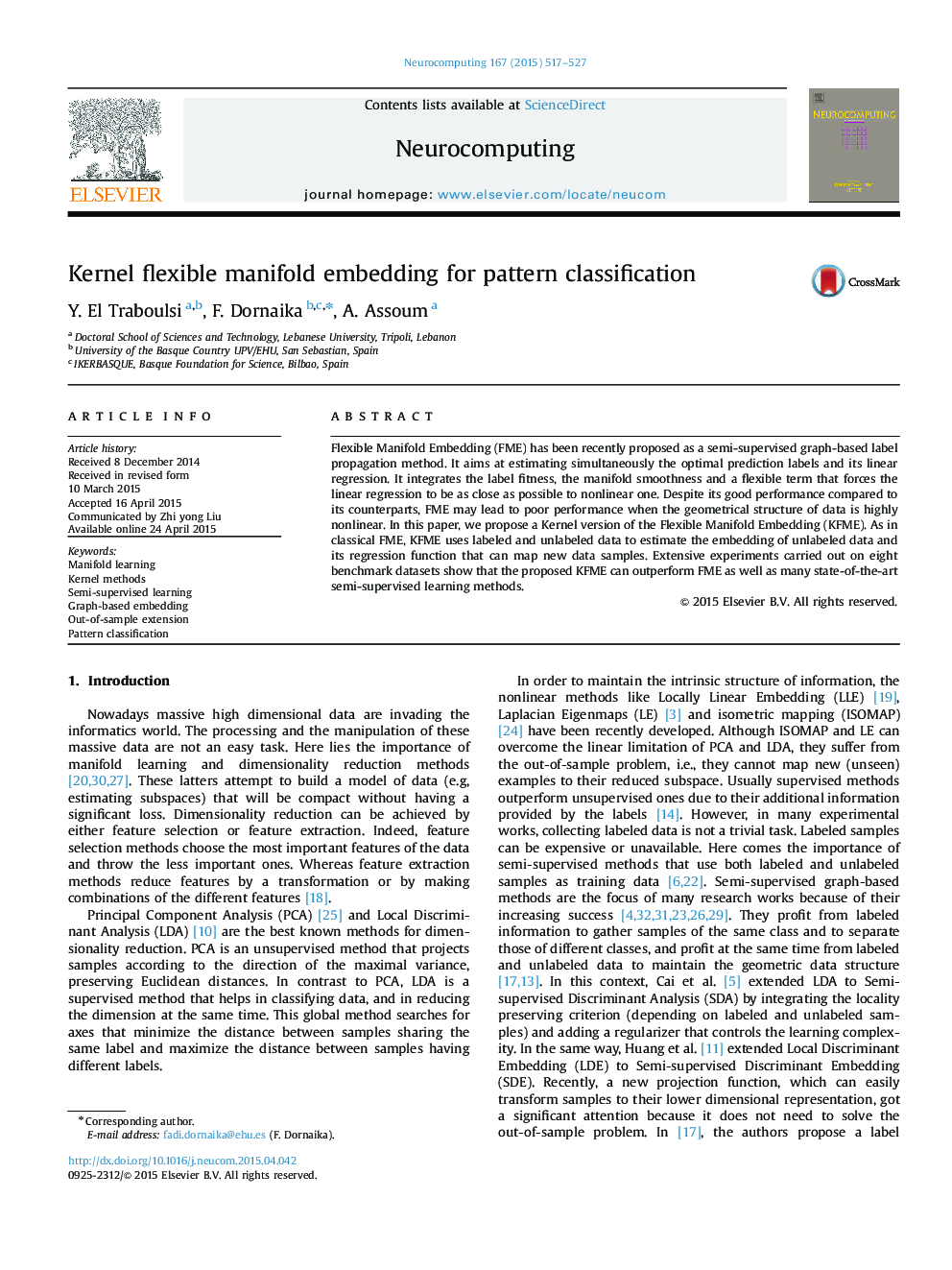| Article ID | Journal | Published Year | Pages | File Type |
|---|---|---|---|---|
| 406316 | Neurocomputing | 2015 | 11 Pages |
Flexible Manifold Embedding (FME) has been recently proposed as a semi-supervised graph-based label propagation method. It aims at estimating simultaneously the optimal prediction labels and its linear regression. It integrates the label fitness, the manifold smoothness and a flexible term that forces the linear regression to be as close as possible to nonlinear one. Despite its good performance compared to its counterparts, FME may lead to poor performance when the geometrical structure of data is highly nonlinear. In this paper, we propose a Kernel version of the Flexible Manifold Embedding (KFME). As in classical FME, KFME uses labeled and unlabeled data to estimate the embedding of unlabeled data and its regression function that can map new data samples. Extensive experiments carried out on eight benchmark datasets show that the proposed KFME can outperform FME as well as many state-of-the-art semi-supervised learning methods.
